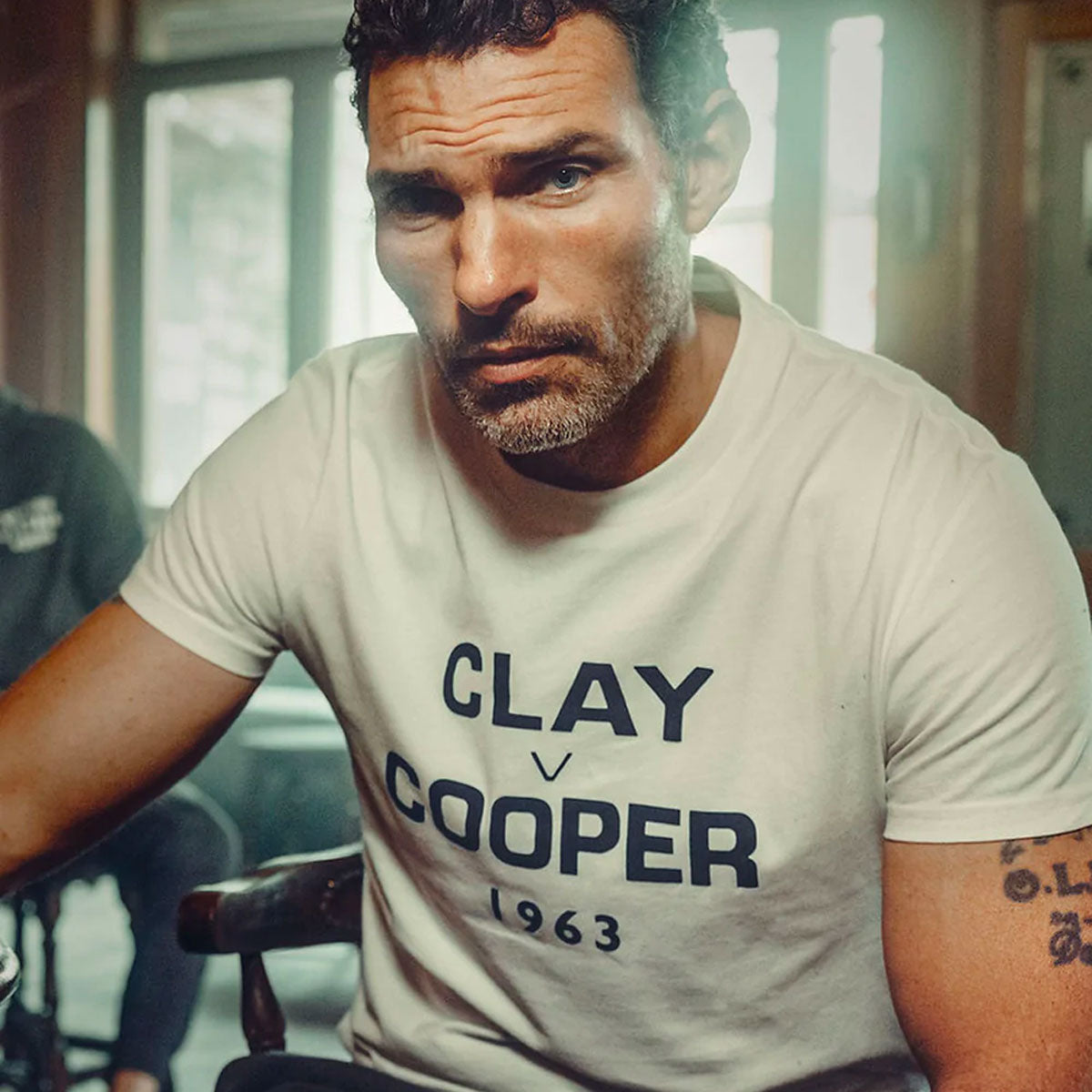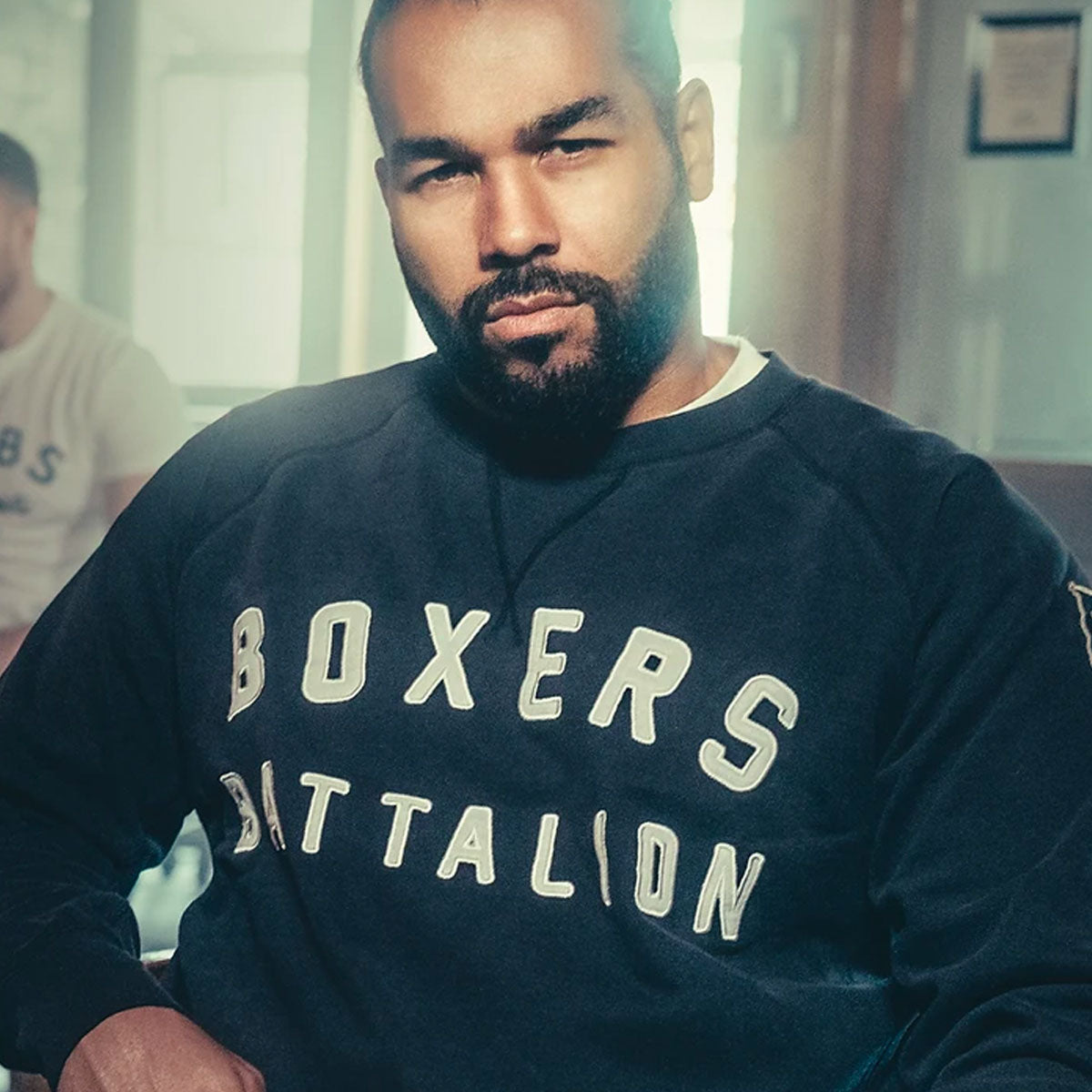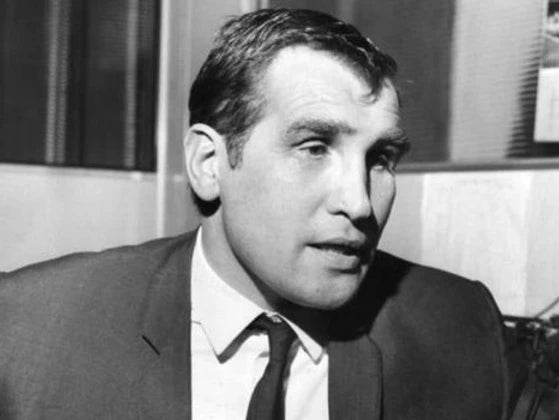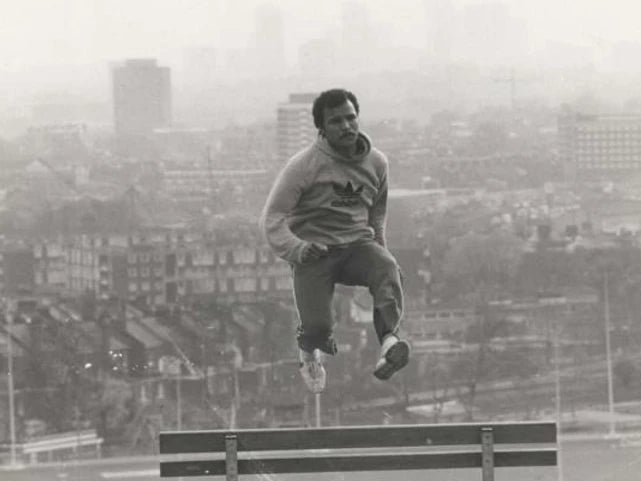Resplendent in a Savile Row suit, immaculately groomed - his shoes polished to the point of refraction, George Walker was every bit the archetype businessman. Only when shaking his massive scarred fist and noticing his embattled features did you realise Walker was not your average suit. When he spoke his immense charm couched in East End parlance would immediately disarm you, adding to the romance of a man who had fought his way to respectability from an early life of crime.
Born in Stepney, East London, Walker left school at 14 to help family ends meet as a porter at Billingsgate market. He took up boxing during national service and would win the ABA light heavyweight championship in 1951, preceding Henry Cooper 1952-53. His pro career would be cut short, when in 1953 after a tilt at the vacant light-heavyweight title against the tough Welshman Dennis Powell he suffered seven knockdowns, two broken fists, a ruptured spleen and double vision, an affliction that stayed with his for the rest of his life. Powell for his efforts needed 22 stitches in his face and was never the same again. One veteran boxing journalist commented it was the most savage fight he'd ever witnessed. It was no surprise given the environment, his pedigree and physical stature that Walker would fall into the employ of The EastEnd criminal fraternity - he did so as a bodyguard to the infamous Billy Hill. During this period a botched warehouse burglary landed him a 2 year jail term, an indiscretion that would come back on him years later.

It was his managing of younger brother, British heavyweight 'Golden Boy' Billy Walker that he began to flex his entrepreneurial muscles, making ten of millions during the 1960's and launching 'Billy's Baked Potato' fast-food outlets on the back of Billy's celebrity status. Buying into the Hendon racetrack in North London - later to be developed into Brent Cross Shopping centre - the brothers made millions. He launched the Brent Walker leisure and property group at one point owning The Trocadero in Piccadilly Circus, Brighton Marina, hotels and holiday villas in Europe and Tunisia and The Goldcrest Film company which produced such hits as Gandhi and Chariots of Fire. As a film mogul he relaunched the career of Joan Collins financing her movies The Stud and The Bitch. By the late-eighties Walker's strategy of borrowing against bold ideas saw no boundaries as he was courted from every corner of the City. In 1988 he bought two breweries for £240 million and with one last majestic flourish his financiers facilitated a £685 million swoop to buy William Hill and Mecca chains of bookmakers. For all his 'visionary' acumen he wouldn't envisage what was lurking around the corner and by the late nineties with property values plummeting and interest rates remaining high, Walker's empire would collapse with debts of 1.4bn. He survived a series of bankruptcies and charges that he defrauded the Brent Walker Group of millions, of which later cleared.
Having been ousted by the board of directors at Brent Walker and with his personal finances in tatters all appeared lost. Walker however would summon his fighting spirit once again and after spotting an opportunity in Eastern Europe after the fall of the Berlin Wall he set up a company importing cigarettes to Russia and opening a betting shop and Casino in Moscow. Other deals with Russian oligarchs to beam British horse racing to Eastern Europe soon had the pound notes flowing once more. An incredible achievement considering he still had the double vision he'd acquired during the brutal battle back in 1953. At 81 he died of a heart attack at one of his several holiday homes, in the medieval village of Eze on France’s Cote d’Azur.
Born in Stepney, East London, Walker left school at 14 to help family ends meet as a porter at Billingsgate market. He took up boxing during national service and would win the ABA light heavyweight championship in 1951, preceding Henry Cooper 1952-53. His pro career would be cut short, when in 1953 after a tilt at the vacant light-heavyweight title against the tough Welshman Dennis Powell he suffered seven knockdowns, two broken fists, a ruptured spleen and double vision, an affliction that stayed with his for the rest of his life. Powell for his efforts needed 22 stitches in his face and was never the same again. One veteran boxing journalist commented it was the most savage fight he'd ever witnessed. It was no surprise given the environment, his pedigree and physical stature that Walker would fall into the employ of The EastEnd criminal fraternity - he did so as a bodyguard to the infamous Billy Hill. During this period a botched warehouse burglary landed him a 2 year jail term, an indiscretion that would come back on him years later.

It was his managing of younger brother, British heavyweight 'Golden Boy' Billy Walker that he began to flex his entrepreneurial muscles, making ten of millions during the 1960's and launching 'Billy's Baked Potato' fast-food outlets on the back of Billy's celebrity status. Buying into the Hendon racetrack in North London - later to be developed into Brent Cross Shopping centre - the brothers made millions. He launched the Brent Walker leisure and property group at one point owning The Trocadero in Piccadilly Circus, Brighton Marina, hotels and holiday villas in Europe and Tunisia and The Goldcrest Film company which produced such hits as Gandhi and Chariots of Fire. As a film mogul he relaunched the career of Joan Collins financing her movies The Stud and The Bitch. By the late-eighties Walker's strategy of borrowing against bold ideas saw no boundaries as he was courted from every corner of the City. In 1988 he bought two breweries for £240 million and with one last majestic flourish his financiers facilitated a £685 million swoop to buy William Hill and Mecca chains of bookmakers. For all his 'visionary' acumen he wouldn't envisage what was lurking around the corner and by the late nineties with property values plummeting and interest rates remaining high, Walker's empire would collapse with debts of 1.4bn. He survived a series of bankruptcies and charges that he defrauded the Brent Walker Group of millions, of which later cleared.
Having been ousted by the board of directors at Brent Walker and with his personal finances in tatters all appeared lost. Walker however would summon his fighting spirit once again and after spotting an opportunity in Eastern Europe after the fall of the Berlin Wall he set up a company importing cigarettes to Russia and opening a betting shop and Casino in Moscow. Other deals with Russian oligarchs to beam British horse racing to Eastern Europe soon had the pound notes flowing once more. An incredible achievement considering he still had the double vision he'd acquired during the brutal battle back in 1953. At 81 he died of a heart attack at one of his several holiday homes, in the medieval village of Eze on France’s Cote d’Azur.





